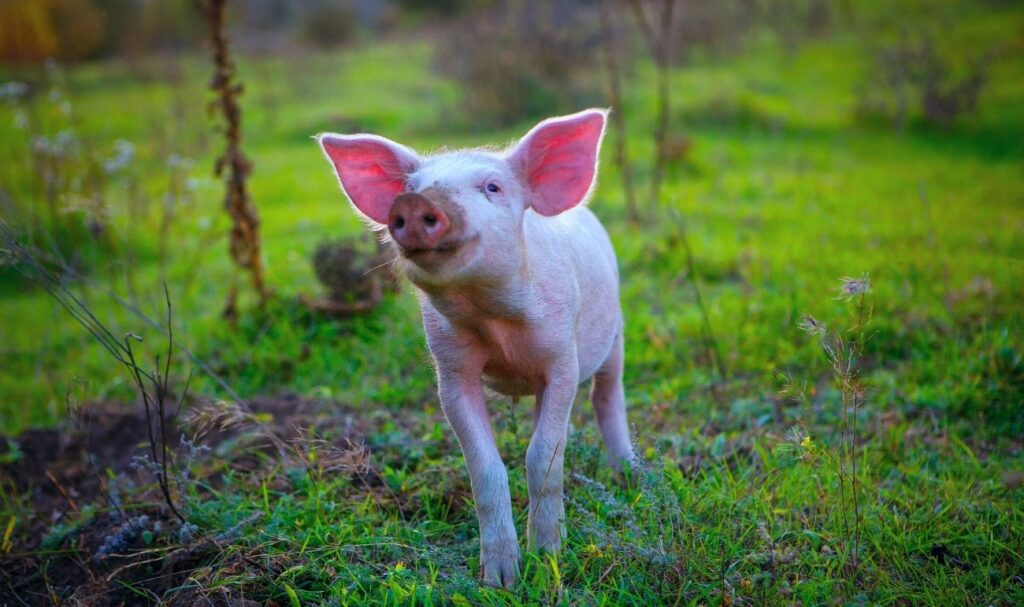
It has always been like that
Lately, I started watching an incredibly compelling Korean series on Netflix called ‘Tomorrow.’ I’m currently on episode 10 out of 16, and I’m not sure how it will conclude or if there will be another season. Initially, I began watching it to get a glimpse of the remarkably handsome Lee Soo Hyuk. However, I ended up taking blog notes during 8 out of the 10 episodes, and in 7 out of the 10, I found myself deeply moved to the point of tears. The entire series may not necessarily be a masterpiece, but the script and acting certainly are.
The plot revolves around the sensitive subject of suicide and explores the reasons why people take their own lives. In the world crafted by the screenwriter, there is a division of Reapers in the afterlife, tasked with handling special missions. Among these units is the CR crisis department, responsible for dissuading people from ending their own lives.
Each episode presents a different story, but perhaps the most surprising and emotionally impactful one for me was Episode 9, in which the team had to save a suicidal dog. This might sound unusual and not particularly serious, and indeed, my initial reaction was, ‘What am I watching?’ and ‘Who thought this was a good idea?’ Yet, that’s the nature of series; there are better and worse episodes, and you simply continue watching. So, I continued watching.
The ZR team was equally perplexed when assigned the dog as their next case. Kong was an animal who seemed to desire death, and it was their mission to change that. Initially, they suspected it was a system error, but ultimately, orders were orders, and the task had to be completed. It was thought that someone had abandoned Kong, but after consulting a veterinary clinic, it was revealed that the dog was sick and had limited time left to live. The main character couldn’t fathom how someone could abandon a sick dog and wished the owner eternal torment in hell after their life ended.
Later, it was discovered that Kong had run away from home of his own accord because he believed that the family he loved was suffering because of him. He didn’t want to be a burden or a source of sadness and decided that it would be better to die alone. It became evident that, in times of mourning and illness, humans and animals alike can behave irrationally and extremefully. After all, emotions know no bounds.
With them it is the same as with people.
He certainly had a reason to try to kill himself. We need to find out what and save him. Pets are no exception.
The above words were spoken by the HR manager, and it’s challenging to disagree with them. Frequently, as humans, we tend to place ourselves in a superior position in relation to the beings around us. Only with sufficient mindfulness and sensitivity can we uncover the truth that everyone is unique but ‘neither better nor worse’ when compared to others. In the end, we are remarkably similar.
When it comes to animals, there’s often a prevailing belief that they are unintelligent, lack emotions, and are driven solely by instinct. But is this really the case? Who gave us the right to underestimate others? How can we claim to understand what animals feel when we often struggle to accurately discern the emotions of the people closest to us, and at times, even our own feelings?
This tendency stems from our arrogance, pride, and ego, cultivated within ourselves. Why do we seek proof that animals can feel emotions, while we lack definitive proof that you feel the same as I do? Is our pride preventing us from admitting that we don’t know? Are we afraid of losing our perceived higher rank and status to animals? It’s as if we’re fearful of considering a sick person as an equal being, as it might make us feel inferior. In reality, it just makes us different.

Kong is more than just a dog to me. It is my family.
These words were spoken by a seasoned dog owner. For many of us, animals are often seen as mere additions to our lives, making our solitary days at home more enjoyable or serving as a source of a tasty meal. They are frequently treated as ‘somethings’ rather than ‘someones.’ Fortunately, not everyone shares this viewpoint.
The author of the book ‘The Spiritual Life of Animals,’ a respected German biologist and botanist, painstakingly demonstrates on over 300 pages that animals possess awareness, emotions, and a spiritual essence.
- Animals experience pain, sadness, and grief; they go through a mourning process. They feel pleasure when basking in the sun and discomfort when getting wet. Some engage in sexual activities not solely for procreation but also for the pleasure of orgasm. Some form lifelong partnerships, while others have multiple mates. They experience love for their offspring and other family members. They can recognize family bonds, have friends and acquaintances within and across species. They can express gratitude, a feeling that requires the ability to acknowledge that someone or something has brought joy to their lives. Cicero himself recognized that dogs are capable of such emotions.
- Animals are not limited to basic instincts; they can also engage in more complex behaviors such as theft, deception, and manipulation. The author shares anecdotes, such as roosters deceiving chickens by pretending to enjoy delicious food while making loud noises. Magpies pretend to defend territory in the presence of their partners but flirt when alone. Foxes convincingly feign death while hunting for crows, even extending their tongues.
- They are aware of socially accepted norms within their environment or herd, which can lead to feelings of embarrassment and confusion. Animals possess a sense of justice, which plays a role in maintaining harmony within the herd.
- There are both timid and courageous animals, with courage defined as the ability to take action despite identified dangers.
- Some animals can count, recognize their own reflections in mirrors, and even have distinct names within their herds. They display impatience, as observed in an experiment involving rats lining up, similar to human behavior in supermarkets.
- Empathy and compassion are also found in animals. They provide comfort to other suffering animals, and the longer they know each other, the more effective this empathy becomes. This extends across species and mirrors human neural processes.
- Animals exhibit free will and engage in altruistic behavior. They share food, rescue other animals, pass down knowledge across generations, and preserve traditions. They learn from experience, much like humans.
- They have an understanding of nature and can predict weather changes, akin to human ancestors who lived close to nature.
- As they age, animals may suffer from dementia, eat less, become irritable, and are aware of their age limitations and the passage of time, akin to humans.
These are just a few examples of the myriad ways animals exhibit complex behaviors and emotions.
What struck me the most as I read this book was the author’s emphasis on the significance of all the organisms that surround us within the ecosystem, without grading their importance. Often, we find ourselves more sympathetic towards domestic animals and less so towards farm animals. Creatures like insects are frequently considered disgusting and expendable. However, even the least appealing creatures have feelings, they are alive, and they play a vital role in the grand tapestry of life.
For instance, even ticks, typically seen as pests, experience hunger, desire, and the need to find a partner. Have you ever contemplated them in such terms? Of course, I’m not suggesting we start breeding ticks and taking them for walks. Instead, I aim to highlight that they too are living beings, each with their unique significance and purpose within the intricate web of life. They deserve respect, just like all the other organisms around us.
“I believe that every creature, however small or hideous, possesses a soul. Those who claim otherwise do so in order to justify their brutality against them.”
“Light Singer” Audrey Grey

We may not always have scientific proof for everything. In situations where we cannot definitively determine something, is it not worth extending the benefit of the doubt to the theory that animals possess feelings and have souls? They are living creatures that play vital roles in the ecosystem and deserve our respect. Instead of mistreating them just because we haven’t scientifically proven their equality as divine beings, should we not consider the possibility?
As humans, we have a tendency to judge and form opinions. This tendency often leads us to categorize beings into ‘better’ or ‘worse,’ ‘smarter’ or ‘stupider,’ ‘stronger’ or ‘weaker,’ ‘prettier’ or ‘uglier.’ Every day, we decide who deserves our time and help based on our personal preferences and biases. The most common argument I hear is that animals are ‘stupid.’ However, when we think about it, emotions do not require intelligence. We do not need to overanalyze to understand that we are sad, in pain, or experiencing joy.
With this perspective in mind and considering the atrocities that segregation has led humanity to commit, let’s reflect on how we treat all the creatures that share our world daily.
When we recognize that animals are divine beings, different from us but equally important, it can become uncomfortable, even immoral, to use them as we have been. Perhaps it is time to contemplate whether, for the sake of a new perspective and heightened awareness, we should sacrifice some of our comfort and reduce the scale of our objective use of animals, treating them as they deserve.
I believe that using and labeling them as ‘stupid’ or ‘unaware’ creatures primarily serves political and economic interests. Scientists have ample knowledge to confirm the intelligence of creatures like pigs, yet we do not see public messages promoting this awareness. Instead, we are bombarded with media advertisements touting the tastiness and health benefits of sausages that our children will grow big and healthy with. If people were fully aware of the sentient and conscious animals on their plates, would they still consume meat with such enthusiasm? Many might lose their appetite. However, we often prefer not to know, feel, or see it and convince ourselves that this is how it has always been – that animals are here to serve us. A similar phenomenon exists within our own species. Though we live in a civilized world, we must remember that practices like slavery and child trafficking still persist on a large scale across the globe.
Perhaps it is time to look upon all existence with understanding, respect, and love.

Organize your life.
The first publication in the Untold product series, created to share methodology for organizing everyday life, cultivating systematic discipline, and developing proper habits. Drawing from the author's experience, knowledge, beliefs, and commonly available coaching tools, she aims to inspire you to take action and present you with a straightforward approach to achieving fulfillment and building self-esteem. Written in a simple way, it contains examples from everyday life, practical tips, exercises, and beautiful graphics. Available in e-book and audiobook.




Leave a Reply